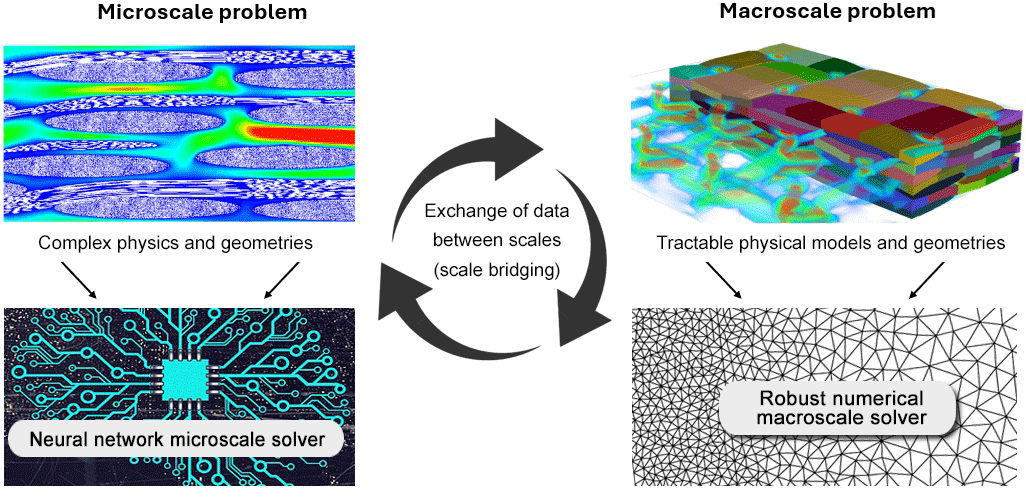Flexible, resilient and efficient hybrid solver for multiscale simulations
| Funded by | Federal Ministry of Education and Research (funding code: 01IS24081) |
| Funding Period | 01.10.2024 - 30.09.2027 |
| Project Head | Prof. Dr. Michael Hintermüller |

Project description
The simulation of physical processes within composite materials, such as fiber-reinforced plastics (FRP), requires consideration of multiple scales, including the microscale (individual fibers, approx. 5-12 μm), the mesoscale (fiber bundles within a few millimeters), and the macroscale (component level).
At each level, physical processes such as fluid flow are governed by distinct sets of equations, with appropriate coupling of such equations across scales using techniques from numerical homogenization and materials science. These simulations are complex and repetitive, necessitating new approaches driven by recent advances in machine learning and AI to enable flexible, efficient, and resilient solutions of multiscale problems.
The HybridSolver project aims to develop a new generation of numerical methods that simultaneously address all scales in the underlying multiscale problem by using physics-informed neural networks and conventional numerical techniques. At each scale, an appropriate neural network-based solver or numerical approximation method is selected to best fit the nature of the problem. Coupling into a monolithic computational framework is achieved through materials science scale bridging, and the hybrid numerical solution is obtained by solving a new class of PDE-constrained optimization problems.
Consortium
The HybridSolver project brings together a consortium of academic and industry experts.
The Weierstrass Institute for Applied Analysis and Stochastics (WIAS) focuses on the mathematical modeling and formulation of the hybrid solver, as well as the development of efficient optimization algorithms tailored to the problem's hybrid structure.
The Chair of Scientific Computing (SciComp) at the University of Kaiserslautern-Landau (RPTU) specializes in automatic differentiation and algorithmic advancements, ensuring efficient implementation within a differentiable programming paradigm.
The Leibniz Institute for Composite Materials (IVW) contributes domain expertise and provides data for multiscale modeling.
The project also benefits from the industrial insight of BOSCH and COMSOL, who serve as advisory board members.



